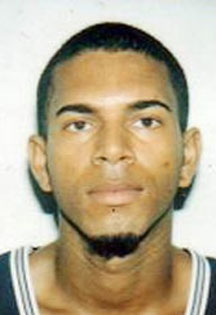The release of telephone records in the Trevor Kissoon murder investigation has led to the arrest of a suspect, who is likely to be arraigned on the capital charge today.
Kissoon, a New Amsterdam taxi driver, was murdered between June 9 and June 10, 2010.
Stabroek News was reliably informed that telecommunications provider Digicel released the necessary information to police following an article in this newspaper last December. It was diligent police work that later led to the arrest of the suspect at a city address over the weekend and a subsequent confrontation with a woman who had earlier provided police with important information. The suspect is originally from Corentyne, Berbice.

A source close to the investigation said yesterday that Digicel, which police had taken to court in a bid to get the release of telephone records, provided the Commissioner of Police with information that led to the identity of the owner of the number that was used to call Kissoon’s taxi service base requesting “the 212 driver”.
The source stated that this information was passed to investigators, who were able to trace the phone to a woman and then to a man. The woman related to investigators that the man had borrowed the phone from her around the time the murder was committed but he never returned the instrument.
Following further questioning, police were able to find the man. The Director of Public Prosecutions (DPP), Stabroek News was told, has since advised the police to charge the suspect with murder.
It believed that at about 10.50 pm on June 9, an unknown male caller contacted the J&S Taxi Service and requested that the “212 driver” pick him up him up at the Canje turn. Kissoon, who was driving a 212 AT 192 Silver Carina, was dispatched and later confirmed with the base via his radio set that he had made the pick-up and was on his way to Rose Hall.
Around 7 am the next day, at the same area where the passenger was dropped off, Kissoon’s body was discovered lying face down on the parapet with several injuries to his head and other parts of his body.
Several weeks after the murder, DPP Shalimar Ali-Hack wrote to the then Police Commissioner Henry Greene seeking assistance and intervention in the acquisition of the vital telephone records from Digicel.
In her letter, she stated that under Section 9A of the Telecommunications Act No 27 of 1990 as amended by the Telecommunications (Amendment) Act No 20 of 2008, licensees providing mobile phone services must record and store for a period of five years, not only the particulars of customers activating or reactivating SIM cards but also transactions of persons calling and persons receiving calls as well as the time and duration of those calls.
She stated too that pursuant to Section 53 (2) C of the Telecommunications Act No 27 of 1990, disclosure of such information from the service provider is permitted for certain specific purposes and includes “information which is made in connection with the investigation of a criminal offence.”
After getting no response from Digicel, the police last September filed an application in the High Court for the records to be provided.







